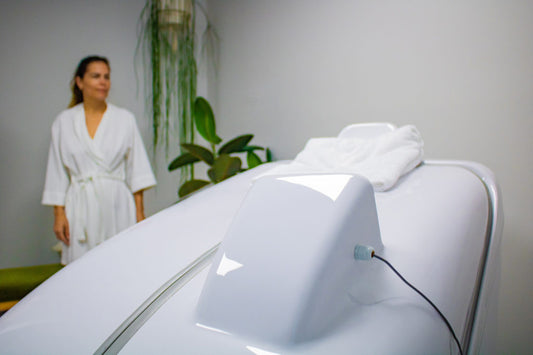What is Ozone Therapy: Does it Work, and is HOCATT the Key?
Ozone therapy has been generating buzz in the wellness world for its potential to enhance health and well-being. But with so much conflicting information out there, it's natural to wonder: What exactly is ozone therapy, and does it actually work?
Understanding Ozone Therapy:
Ozone (O3) is a naturally occurring molecule composed of three oxygen atoms. In therapeutic settings, medical-grade ozone is administered through various methods, including injections, saunas, and rectal insufflation, to deliver its purported benefits. Proponents of ozone therapy claim it can:
- Boost the immune system: Ozone is believed to stimulate the production of white blood cells and other immune system components.
- Enhance circulation: Improved blood flow could potentially benefit various conditions like pain, fatigue, and wound healing.
- Act as an antioxidant: Ozone may neutralize harmful free radicals, potentially reducing oxidative stress and inflammation.
- Fight bacteria and viruses: Ozone's oxidizing properties may have antimicrobial effects.
The Evidence So Far:
While research on ozone therapy is ongoing, the current body of evidence is mixed. Some studies have shown promising results for specific conditions, like pain management in herniated discs or improved circulation in diabetic clients. However, other studies have yielded inconclusive or negative findings.
The HOCATT Advantage:
One emerging approach to ozone therapy is the HOCATT™ Sauna, a specialized system that combines ozone with heat therapy and far-infrared radiation. Proponents of HOCATT therapy believe it offers several advantages over traditional methods:
- Controlled ozone exposure: The HOCATT system precisely regulates ozone concentration, minimizing potential risks.
- Synergistic effects: Combining ozone with heat and infrared radiation may enhance its therapeutic benefits.
- Comfortable and convenient: HOCATT saunas offer a relaxing and non-invasive treatment experience.
Promising Research on HOCATT:
While large-scale studies on HOCATT therapy are still needed, preliminary research suggests potential benefits for various conditions:
- A 2019 study published in the Journal of Pain Research found that HOCATT sauna therapy significantly reduced pain and improved function in clients with chronic low back pain.
- A 2020 study in the International Journal of Hyperthermia showed that HOCATT therapy improved blood flow and oxygenation in the legs of clients with peripheral arterial disease.
- A 2021 pilot study published in the International Journal of Molecular Sciences reported positive effects of HOCATT therapy on fatigue and quality of life in cancer clients.
The Bottom Line:
Ozone therapy, particularly in the form of HOCATT saunas, holds promise for various health conditions. However, more research is needed to definitively establish its efficacy and safety. If you're considering ozone therapy, it's crucial to consult with a qualified healthcare professional who can assess your individual needs and advise on the most appropriate approach.
Ready to Experience the HOCATT Difference?
At Oceanbeach Oxygen, we're passionate about providing cutting-edge wellness solutions to our clients. We believe the HOCATT Sauna offers a safe and effective way to experience the potential benefits of ozone therapy. If you're curious about how HOCATT could benefit your health, contact Angela at Oceanbeach Oxygen today to schedule a consultation and learn more!
Don't let uncertainty hold you back from exploring the potential of ozone therapy. Contact Angela at Oceanbeach Oxygen today and take the first step towards a healthier, more vibrant you!
Remember: Consulting with a qualified healthcare professional is crucial before starting any new therapy, including ozone therapy.
Additional Resources:
- International Ozone Association: https://ioa-pag.org/
- American Academy of Environmental Medicine: https://www.aaemonline.org/
- Journal of Pain Research: https://www.dovepress.com/journal-of-pain-research-journal
- International Journal of Hyperthermia: https://www.tandfonline.com/journals/ihyt20
- International Journal of Molecular Sciences: https://www.mdpi.com/journal/ijms










